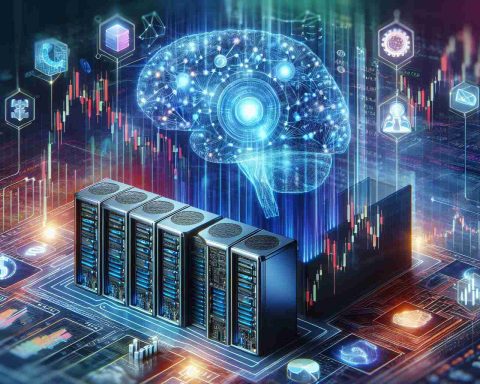As we approach the second anniversary of ChatGPT’s launch, it marks a significant moment in the evolution of artificial intelligence. OpenAI introduced ChatGPT to the public in late November 2022, and it rapidly garnered a user base exceeding 100 million. Following its launch, a wave of similar applications emerged, attracting substantial investments and sparking widespread discussions about the ethical implications and potential drawbacks of AI technologies.
Despite early excitement surrounding the idea of universal artificial intelligence transforming societal functions and enhancing efficiency, interest has begun to wane. This trend is encapsulated in the Gartner Hype Cycle, which illustrates the pattern of technological adoption. Initially, there is a steep rise in excitement, followed by a sharp decline. According to industry analysts, we currently find ourselves at a low point called the “trough of disillusionment,” where expectations have tempered after initial exuberance.
As Peter Koubský, a prominent journalist, observes, while the peak of excitement for AI has passed, the journey ahead still holds potential. The landscape predicts that some investors may face losses, which is common in emerging and high-risk sectors, while others could succeed significantly as the market stabilizes. The ongoing narrative suggests that we are moving through a phase of adjustment, where the true value and practicality of technologies like ChatGPT will gradually become clearer.
Reflecting on the Rise and Challenges of ChatGPT: A Comprehensive Overview
As we commemorate the evolution of ChatGPT, it is essential to delve deeper into both the key achievements and the hurdles faced by this groundbreaking AI tool. Since its public launch, ChatGPT has not only transformed the landscape of conversational AI but has also introduced a plethora of challenges and debates regarding its integration into everyday life.
What are the key advancements in ChatGPT since its launch?
One of the notable advancements includes continuous updates aimed at improving accuracy and reducing bias. OpenAI has implemented a series of fine-tuning processes, leading to more coherent and contextually relevant responses. Additionally, enhancements in understanding and generating human-like text have made the application increasingly adept at facilitating complex dialogues, contributing to its widespread adoption across various industries.
What challenges does ChatGPT face today?
Several challenges persist, including ethical considerations surrounding data privacy and misinformation. There are ongoing concerns regarding the use of AI-generated content to spread false information, which could have far-reaching consequences in social and political contexts. Furthermore, the risk of dependency on AI systems for decision-making raises questions about human oversight and accountability.
Are there controversies associated with chatbots like ChatGPT?
Yes, there are several controversies. One major debate revolves around the potential job displacement due to AI automation. Many experts argue that while AI can enhance productivity, it also threatens numerous jobs, particularly in sectors reliant on routine tasks. Another controversy is linked to the inherent biases present in AI systems, which reflect those in the training data. This raises alarms about discrimination and fairness in applications of ChatGPT and similar technologies.
What are the advantages of using ChatGPT?
ChatGPT offers numerous advantages such as improved efficiency, accessibility, and support for a variety of applications ranging from customer service to educational tools. Its ability to provide rapid responses can significantly enhance user experiences, making information retrieval faster and more convenient. Furthermore, the technology can serve as a platform for creativity, assisting users in brainstorming and drafting content.
On the other hand, what are the disadvantages?
Despite its benefits, ChatGPT has disadvantages that cannot be ignored. Issues of reliability and accuracy remain critical; as an AI, it may generate responses that are factually incorrect or misleading. Additionally, the lack of emotional intelligence in handling sensitive subjects can lead to inappropriate responses, further complicating the application of such technology in personal or critical contexts.
What does the future hold for ChatGPT and similar technologies?
Looking ahead, the future of ChatGPT and AI technologies seems to hinge on finding a balance between innovation and ethical responsibility. Companies will need to prioritize transparency, user education, and the implementation of regulatory frameworks to combat misuse and ensure responsible deployment. The conversation surrounding AI will likely evolve to focus more on collaborative human-AI interactions, enhancing rather than replacing human abilities.
In conclusion, while ChatGPT has seen remarkable growth and has brought various advantages, it is essential to address the associated challenges and controversies. As society progresses, ongoing discussions about the ethical implications and practical applications of AI will shape the trajectory of technologies like ChatGPT, ensuring they serve as beneficial tools rather than sources of division.
For further information on this topic, you can visit OpenAI.

















